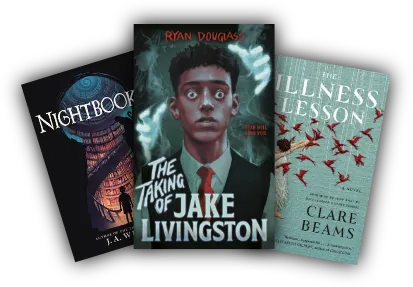How To Hire Someone To Write A Book For You

Have you ever dreamed of seeing your name on the cover of a published book, sharing your unique insights or captivating stories with the world, but found yourself stuck at the starting line? Perhaps you have a brilliant concept, a wealth of knowledge, or a compelling personal journey, but the daunting task of actually writing a book feels overwhelming. You’re not alone! Many aspiring authors, entrepreneurs, and thought leaders face this very challenge. The good news is, you don’t have to go it alone. You can hire someone to write a book for you.
This comprehensive guide will walk you through the entire process, from understanding the different types of writing services available to finding the perfect ghostwriter or writing professional who can transform your ideas into a compelling manuscript.
Table of Contents
ToggleUnpacking the “Why”: Why Hire Someone to Write Your Book?
Before we dive into the “how,” let’s briefly consider the compelling reasons why hiring a professional writer might be the smartest move for your book project:
- Time Constraints: Writing a book is a significant time commitment. If you have a demanding career, family responsibilities, or other pressing commitments, finding the dedicated hours for research, outlining, drafting, and editing can be nearly impossible.
- Lack of Writing Expertise: While you might be an expert in your field, writing engaging, well-structured, and grammatically correct prose is a distinct skill. Professional writers possess the craft to bring your voice and ideas to life effectively.
- Overcoming Writer’s Block: Even experienced writers encounter writer’s block. A ghostwriter can provide the momentum and consistent output needed to keep your project on track.
- Objectivity and Fresh Perspective: A professional writer can offer an objective perspective on your ideas, helping to refine your message, identify potential weaknesses, and strengthen your overall narrative.
- Streamlined Process: Experienced writers are familiar with the entire book creation process, from initial concept to final manuscript. They can help you navigate the complexities and ensure a smoother journey to publication.
Understanding Your Options: Who Can Write Your Book For You?
When you decide to hire someone to write a book, you’re primarily looking at two main professional roles: ghostwriters and book coaches/editors with writing services.
Ghostwriters: The Unseen Architects of Your Story
A ghostwriter is a professional writer who is hired to write books, articles, speeches, or other texts that are officially credited to another person. The ghostwriter’s name typically does not appear on the finished product. This is an ideal solution if you want to be recognized as the author but need someone else to handle the actual writing.
Key Characteristics of a Ghostwriter:
- Anonymity: Their work is attributed to you.
- Comprehensive Writing: They handle everything from outlining and research (often in collaboration with you) to drafting and revisions.
- Voice Matching: A good ghostwriter will meticulously research your voice, style, and unique perspective to ensure the book sounds authentically yours.
- Confidentiality: Ghostwriting agreements typically include strict confidentiality clauses.
When to Hire a Ghostwriter:
- You have a clear concept but lack the time or writing skills to execute it.
- You want to be the sole credited author.
- You need someone to take your ideas and transform them into a fully polished manuscript.
Book Coaches or Editors Offering Writing Services: Collaborative Partners
While their primary roles are often focused on guiding authors or refining existing manuscripts, some book coaches and experienced editors also offer services where they contribute significant writing. This might be in the form of co-authorship (where both names appear), or providing substantial developmental writing based on your outlines and interviews.
Key Characteristics of a Book Coach/Editor with Writing Services:
- Collaborative Approach: They work closely with you, often providing guidance and feedback throughout the writing process.
- Focus on Development: Their expertise often lies in shaping narrative, structuring content, and refining ideas.
- Varying Levels of Involvement: Their writing contribution can range from significant input on specific sections to light co-writing.
- Potential for Co-Authorship: In some cases, they might be credited as a co-author.
When to Consider a Book Coach/Editor with Writing Services:
- You want a more hands-on, collaborative approach to the writing process.
- You have a good start but need help developing your ideas and structuring your book.
- You are open to the possibility of a co-author if their contribution warrants it.
The Semantic Search Strategy for Finding Your Ideal Book Writer
Now that you understand your options, let’s talk about how to find the right person using a semantic search strategy. This means going beyond simple keywords and thinking about the intent behind your search and the context of what you’re looking for.
Step 1: Define Your Book’s Scope and Goals
Before you even start searching, get crystal clear on your project:
- Genre and Topic: What kind of book is it? (e.g., memoir, business, self-help, fiction, non-fiction) What specific topic does it cover?
- Target Audience: Who are you trying to reach?
- Your Message: What is the core message or story you want to convey?
- Length and Timeline: Do you have a rough idea of the desired word count and when you’d like the manuscript completed?
- Budget: Be realistic about what you can afford. Ghostwriting services vary widely based on experience, genre, and project complexity.
Step 2: Utilize Specific Search Terms and Modifiers
Think about how someone searching for your service would describe it. Use a combination of broad and specific terms.
Initial Broad Searches (to get an overview):
- “Hire a ghostwriter”
- “Book writing services”
- “Professional book writer”
- “Get someone to write my book.”
Adding Specificity (to narrow down results):
- Genre-Specific: “business book ghostwriter,” “memoir ghostwriter,” “fiction ghostwriter,” “self-help book writer”
- Industry/Niche-Specific: “healthcare industry ghostwriter,” “tech startup book writer,” “personal development ghostwriter”
- Location (if relevant for in-person meetings): “ghostwriter [your city/region]” (though most ghostwriting is done remotely)
- Problem-Oriented: “help writing a book,” “book idea to manuscript service”
- Outcome-Oriented: “publish a book without writing it,” “expert book writing service”
Step 3: Explore Niche Platforms and Directories
Beyond general search engines, consider platforms specifically designed for connecting authors with writers:
- Professional Organizations: Look for associations related to professional writers or ghostwriters. These often have member directories.
- Freelance Platforms (with caution): Platforms like Upwork, Fiverr, or Guru can list writers, but quality control can be a concern. Be extremely diligent in your vetting process.
- Ghostwriting Agencies: Dedicated agencies specialize in matching clients with ghostwriters. They often have a roster of vetted professionals.
- Author Service Websites: Many websites that offer editing or publishing services also have connections to ghostwriters.
- LinkedIn: Search for “ghostwriter,” “book writer,” or “author coach” and filter by industry or connections.
Step 4: Evaluate Portfolios, Testimonials, and Specializations
Once you have a list of potential candidates, delve deeper into their profiles:
- Portfolio/Writing Samples: This is crucial. Look for samples in a similar genre or style to your book. Can they adapt to different voices? Is their writing clear, engaging, and error-free?
- Testimonials and Reviews: What do past clients say about their experience? Look for comments on professionalism, communication, meeting deadlines, and overall satisfaction.
- Specialization: Do they have experience in your specific niche or genre? A business ghostwriter might not be the best fit for a historical fiction novel, and vice versa.
- Process and Communication Style: How do they work? Do they have a clear process for interviews, outlining, drafting, and revisions? Do their communication methods align with yours?
Step 5: Conduct Thorough Interviews
Don’t skip the interview stage. This is your chance to assess personality, ask specific questions, and gauge their understanding of your project.
Key Interview Questions
- What is your experience in [your book’s genre/topic]?
- How do you typically work with clients? What’s your process?
- How do you ensure the book sounds like my voice?
- Can you share any (confidential) examples of ghostwritten work? (They may not be able to share specific titles due to NDAs, but they can discuss their process and how they’ve helped other clients.)
- What is your estimated timeline for a project like mine?
- How do you handle revisions and feedback?
- What are your fees and payment structure? (Flat fee, per word, hourly?)
- What kind of input do you need from me?
- Are you open to signing a non-disclosure agreement (NDA)?
The Legalities and Logistics: Protecting Your Investment
Once you’ve found your ideal writer, it’s critical to formalize the agreement.
Contract and Non-Disclosure Agreement (NDA)
A comprehensive contract is essential. It should clearly outline:
- Scope of Work: What exactly will the writer deliver? (e.g., word count, number of chapters, research provided)
- Deliverables: What are the milestones and deadlines?
- Payment Schedule: How and when will payments be made?
- Confidentiality Clause (NDA): This protects your ideas and ensures the ghostwriter doesn’t reveal their involvement.
- Ownership of Copyright: The contract should explicitly state that you (the client) retain full copyright to the finished manuscript.
- Revision Process: How many rounds of revisions are included? What happens if additional revisions are needed?
- Termination Clause: What happens if either party needs to terminate the agreement?
Communication is Key
Throughout the writing process, maintain open and consistent communication with your writer. Provide clear feedback, answer their questions promptly, and be available for interviews or discussions. The more input you provide, the more likely the final manuscript will align with your vision.
Final Thoughts: Your Book, Your Legacy
Hiring someone to write a book for you is an investment – an investment in your ideas, your time, and your legacy. By taking a strategic approach to your search, understanding the nuances of different writing services, and prioritizing clear communication, you can confidently find the right professional to help you bring your book to life. Imagine holding that finished book in your hands, knowing that your message is out there, impacting readers and solidifying your expertise. With the right support, that dream can become a reality.

